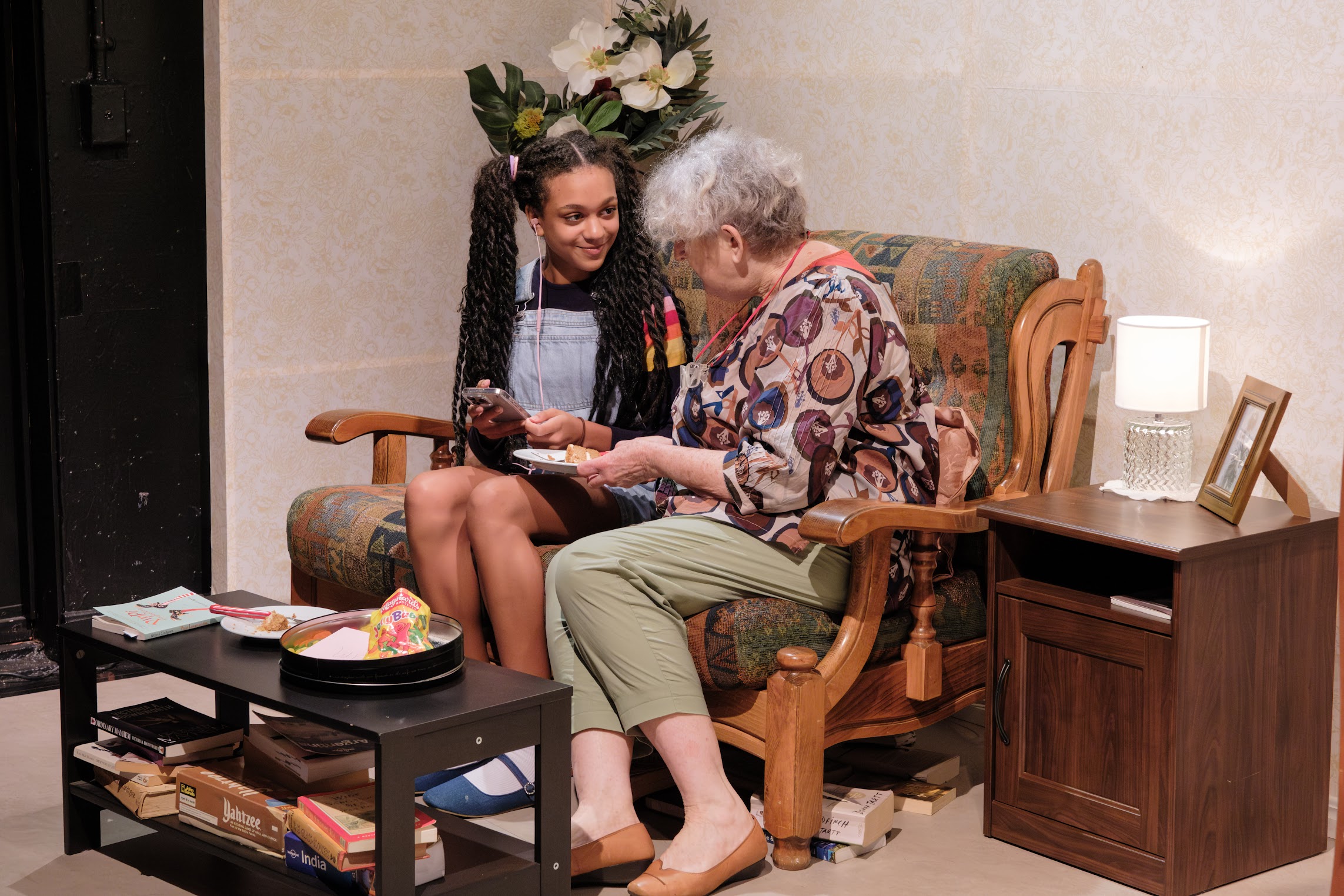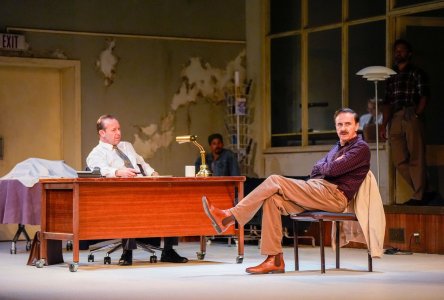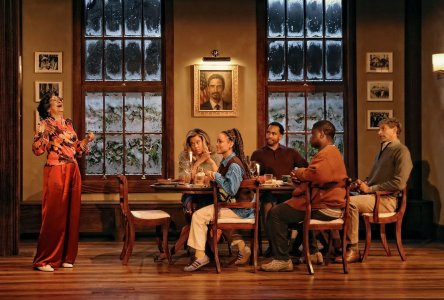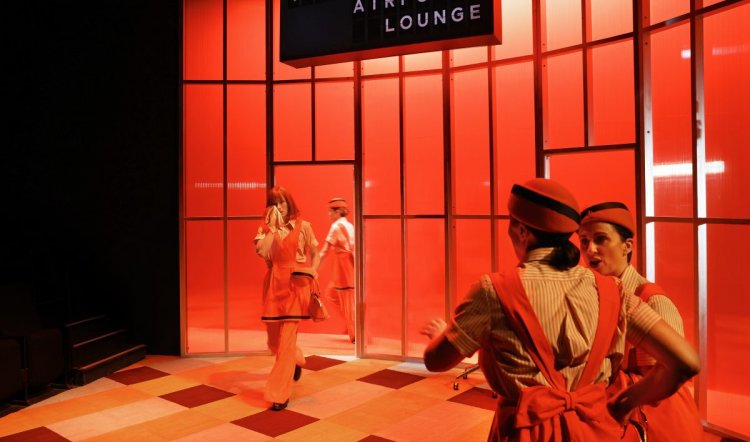
FLY GIRL
FLY GIRL, Ensemble Theatre, 17 October - 22 November 2025. Photography by Prudence Upton
Genevieve Hegney, Catherine Moore, and director Janine Watson are especially good at generating non-stop laughter (think Unqualified and Still Unqualified), and with Fly Girl, they’ve raised the bar even higher. In taking on the true story of Deborah Lawrie, the first Australian woman to become a pilot with a major airline, Hegney, Moore, and Watson have achieved something spectacular in remaking history as hilarity, bitter struggle as laugh-a-minute inspiration, and are reminding deliriously merry audiences of why the F word is still so potent. (That’s Feminism, of course.)
While it was a crappy time to be an ambitious young woman, the 70s are a gift to a costume and set designer. The show opens with a couple of hosties/trolley dollies/flight attendants – doing their widely-smiling thing in classic Burnt Orange bell bottoms and hats.
The only sadness in the production is that there’s no call for an Avocado bathroom suite or Formica-topped breakfast nook. Other than that, the simple, spot-on period set and costumes by Grace Deacon, along with Morgan Moroney’s effective companion lighting, and composer and sound designer Daniel Herten’s sure grasp of the music completes a near flawless and utterly fabulous production.
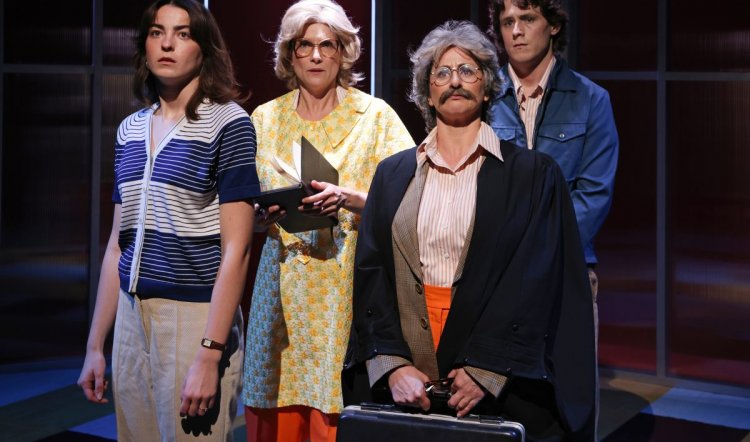
Led by Hegney and Moore, the effervescent company of five (!) takes on many, many roles and recalcitrant false moustaches, to tell the story of how a 16-year-old Deborah Lawrie (Cleo Meinck) got her pilot’s license at Moorabin, along with a soaring ambition to fly big jets. Although she didn’t know what it was at the time, she quickly discovered that hairy-chested sexism was (is?) a uniquely Australian trait.
Female pilots were already working for major airlines in the USA, Britain, and Europe, but not in the land of she’ll be right. Sir Reg Ansett (Hegney in kipper tie), boss of his eponymous airline, was appalled at the idea: women weren’t strong enough (no strength test required in pilot selection), the unions wouldn’t allow it, (when it came time, the unions were all for it), and menstruation meant women wouldn’t be safe in the air. Then there was the matter of pregnancy, children, and even more safety issues.
With Alex Kirwan, Hegney, Moore, and Emma Palmer doubling, trebling and even fourthing and fifthing (the pace, the story, the wit and laughter, the cozzie changes, fake facial hair and sheer pizazz of the evening make it hard to tell) we fly through two decades of Sir Reg’s bastardry, Deb’s determination, a sweet then sour marriage, the birth of the Victorian Equal Opportunity Board and, finally, thanks to Rupert Murdoch (yes, you read that correctly), she achieves her heart’s desire at the controls of a 52-seater Fokker Friendship on a flight from Alice Springs to Darwin. Big jets came a little later, and she’s still flying!
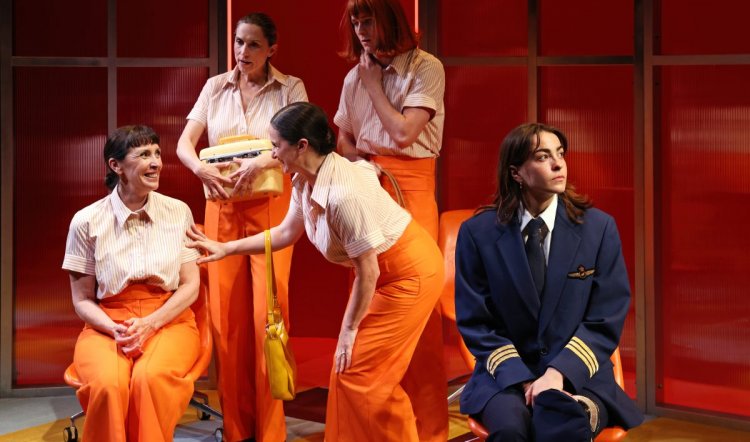
As well as giving us an uproariously good time, Fly Girl packs sneaky punches in its clever insertion of serious themes and the gobsmacking politics and attitudes of the times. However, it’s not didactic, there’s no preaching, and no Oh-poor-me snowflakery as we suffer today. Instead, through a nuanced, sterling performance from Cleo Meinck, a convincing portrait of a remarkable woman and her times emerges.
The others in this small yet multi-faceted/talented ensemble are equally strong and agile across roles and genders. There’s Alex Kirwan as Deb’s air traffic controller hubby, also svelte Helen – the hostie who “ages out” (look it up, it’s awful), as well as a couple of aviation worthies. Emma Palmer morphs from Deb’s mum to the stout-hearted barrister Dwyer, and others, while the authors juggle at least 16 roles between them.
Then there’s the “girlcott”, a true grassroots revolt of women workers that should not be lost to history. Whenever you feel it’s all too much and there’s no point, just check out Girlcott and climb back out of bed. Fly Girl is a glorious, heartfelt, hilarious, tear-jerking couple of hours; never mind anti-depressants, it should be on Medicare. Afterward, my face ached from laughing and grinning – it was good.

